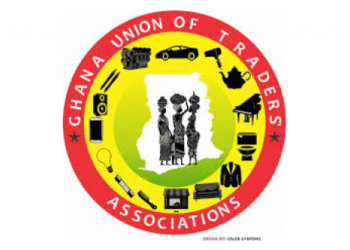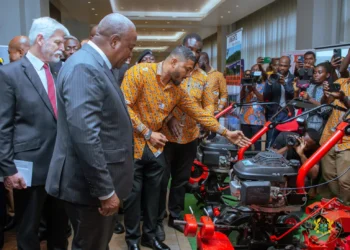Presidential candidate Alan Kyerematen has unveiled a 10-step plan to address the scourge of illegal mining, known locally as galamsey, during a press conference at the Ghana International Press Centre in Accra.
Describing galamsey as an “existential threat,” Mr. Kyerematen criticised both the ruling New Patriotic Party (NPP) and the opposition National Democratic Congress (NDC) for failing to combat the issue over the last two decades, pledging to take decisive action if elected in December’s general election.
Mr. Kyerematen’s plan, which he believes will halt the environmental devastation caused by illegal mining, includes an immediate one-year ban on all small-scale mining activities, both legal and illegal. He said this moratorium would give the government space to put in place long-term measures to restore water bodies and reclaim lands damaged by mining activities.
A key component of Kyerematen’s proposal is the demobilisation of all mining equipment currently in use. He called for the military’s 48 Engineer Regiment to take responsibility for cataloguing and storing the machinery. The move, he explained, would prevent further environmental degradation while a comprehensive review of the sector is conducted.
Efforts to restore Ghana’s polluted rivers and damaged lands would be prioritised under Kyerematen’s plan. He called for a coordinated effort led by the Water Resources Commission and the Environmental Protection Agency, with support from the military, to restore the country’s water bodies to acceptable standards. Simultaneously, the Forestry Commission would oversee a nationwide programme to regenerate degraded lands through plantation development and tree planting.
In a bold move, Mr. Kyerematen proposed cancelling all small-scale mining licenses issued in the last 15 years. These licenses, he argued, must be audited to ensure they were issued in compliance with the law, citing irregularities in the licensing process as one of the factors enabling illegal mining.
Mr. Kyerematen stressed the need for alternative employment for those engaged in galamsey. Under his plan, former illegal miners would be employed in the land reclamation and restoration projects. He also outlined a “Youth in Responsible Mining” initiative, under which young people would be supported to form legal mining companies. These youth-owned firms would be provided with seed funding, machinery, and working capital at subsidised rates, with government management support to ensure responsible practices.
The former Trade and Industry Minister further proposed the creation of citizens’ watchdog groups in mining communities to monitor illegal mining activities. He also pledged to introduce new legislation that would permanently ban mining in sensitive areas such as river bodies and forest reserves, with life imprisonment as a penalty for violators.
Mr. Kyerematen argued that his plan was a direct response to what he called the “policy failure” of previous governments, claiming neither the NPP nor the NDC had demonstrated the political will to solve the galamsey crisis. He positioned his “Movement for Change” party as the only political force capable of tackling the problem.
His comments come amid mounting public frustration over the impact of illegal mining on the environment. Mr. Kyerematen urged Ghanaians, particularly the youth, not to lose hope, assuring them that his administration would provide a clear pathway out of economic despair and environmental destruction.
















